Cuba decries ‘inhuman’ US blockade, demands end to Cold War policies
Cuban Foreign Minister Bruno Rodriguez has called for an end to the long-running “inhuman” US blockade against the Caribbean island nation, saying Washington has no reason to maintain its Cold War policies against Havanna.
Rodriguez made the call in a tweet on Friday and stressed that the United States lacks reasons to enforce coercive measures of “economic suffocation” against the Cuban people amid the coronavirus pandemic.
“There is also no justification for keeping the economic, commercial and financial blockade imposed by Washington for almost six decades,” Rodriguez added.
The Cuban diplomat recently held Washington responsible for five days of unrest in the country that led to at least one death and dozens of injuries and more than 100 arrests.
Rodriguez also insisted that Washington was using high-tech digital systems to incite protests in the small island nation close to US southern coast waters.
Cuba is going through its worst economic crisis in 30 years, with chronic shortages of electricity and food exacerbated by hefty US sanctions.
Cuba’s President Miguel Diaz-Canel said in a post on Twitter earlier in the month that the White House “has failed in its efforts to destroy Cuba, despite spending billions of dollars to do so.”
Diaz-Canel was referring to the US trade embargo that has been in place against Cuba since 1962 and that was reinforced under former president Donald Trump.
The Caribbean nation is also experiencing its toughest phase yet of the coronavirus pandemic. The Cuban government has reiterated that the US embargo is impeding the country’s ability to purchase equipment and other supplies to deal with COVID-19.
Numerous resolutions by the United Nations General Assembly have indicated that the US blockade of Cuba is against international law.
More than 400 artists, politicians, intellectuals and activists from around the world sent a letter to US President Joe Biden on Monday, urging an end to the blockade and the unilateral coercive provisions against Cuba.
The letter was described as an “urgent public call” to undo the “cruel policies” implemented by the Trump administration, and asked the current occupant of the White House to resume the normalization of relations between Washington and Havana.
ALBA countries stress need to condemn US blockades
The South American group of ALBA-TCP countries on Friday reiterated the need to condemn the US blockade against Cuba, Venezuela, Nicaragua and other countries.
Sacha LLorenti, the executive secretary of countries of the Bolivarian Alliance for the Peoples of Our America-People's Trade Treaty (ALBA-TCP), said in a message on Twitter that unilateral coercive measures by the US should be rejected as a “flagrant violation of International Law.”
“Mentioning the blockade and condemning it categorically is not only worthy, but it is what corresponds to those of us who believe that principles and purposes of the United Nations Charter and the right to International law are highly relevant,” Llorente wrote.
The executive secretary of ALBA-TCP recently said it is a crime against humanity to maintain the blockade and deprive people of access to food, medicines and supplies as a way to provoke riots and destabilize the governments.
The ALBA-TCP countries have repeatedly spoken out against punitive measures imposed by Washington, which have also worsened in the midst of the health crisis facing the world due to the Covid-19 pandemic.
China opposes sanctions aiming to press Cuba
Also on Friday, China censured the imposition of US sanctions to press Cuba and called for the immediate removal of the blockade against the island nation.
“Beijing opposes any manifestation of interference in internal affairs, harassment and coercion to other countries, whether by using economic, political or military methods,” Chinese Foreign Ministry spokesperson Zhao Lijian said
Zhao slammed the White House for ignoring the global clamor and keeping intact the economic, commercial and financial blockade imposed more than 50 years ago against the Caribbean country.
The spokesperson demanded an end to the US blockade once and for all, describing it as a violation of international regulations and the people's rights to life and development.
Zhao also expressed Beijing's support for Havana in its efforts to overcome the Covid-19 pandemic, safeguard social stability and improve the population's welfare, as well as deepen the bilateral relations and friendship.
Cuba under hybrid warfare for 60 years
Meanwhile, an expert from a Canadian university said on Friday that the United States has imposed a hybrid warfare on Cuba that combines economic sanctions, a media offensive and terrorism.
Speaking on a virtual panel in response to the big disinformation about the recent protests in Cuba, Professor Claudia Chaufan of the University of York underlined that economic sanctions are a key ingredient of the hybrid warfare given its capacity to “make economies scream” in order to attempt to generate despair among the people.
“A way to wage this war is to manipulate public opinion by means of financing opposition groups, inciting social unrest and preying on existing grievances with the aim of achieving a regime change,” Chaufan said.
Keith Bolender, a journalist and author of a number of books on Cuba-US relations, spoke on the partial media coverage of the protests at the event and said US media published “biased narratives” by claiming that the riots were protests aimed exclusively against the government.
Bolender stressed that the reports by media outlets minimized the country's economic difficulties and the Covid-19 pandemic, and ignored the negative influence of the US blockade.
Exclusive: China voices support for Iran’s stability amid US threats
Border guards seize weapons, ammo cache from terrorists in southeast Iran
VIDEO | Brazil: Uba River floods destroy bridge and buildings, leave people missing
Iran-US negotiators take break after three hours of ‘very serious’ talks
VIDEO | ‘Clear stance’: Iran reiterates its nuclear rights as per NPT, intl. law
Press group: Israel accountable for two-thirds of 129 journalist fatalities in 2025
Iran summons Dutch ambassador to protest diplomat’s smuggling attempt
Iran’s rejection of nuclear weapons based on religious beliefs: Pezeshkian


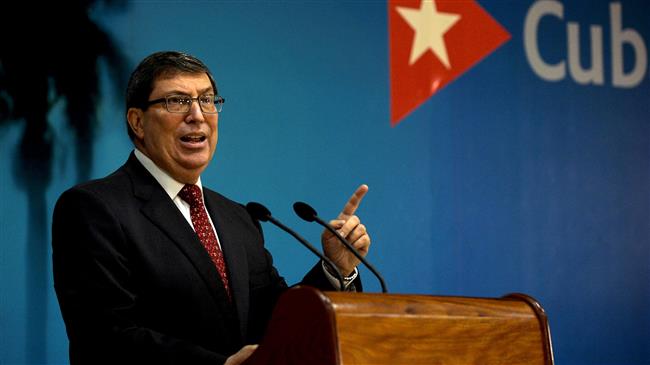
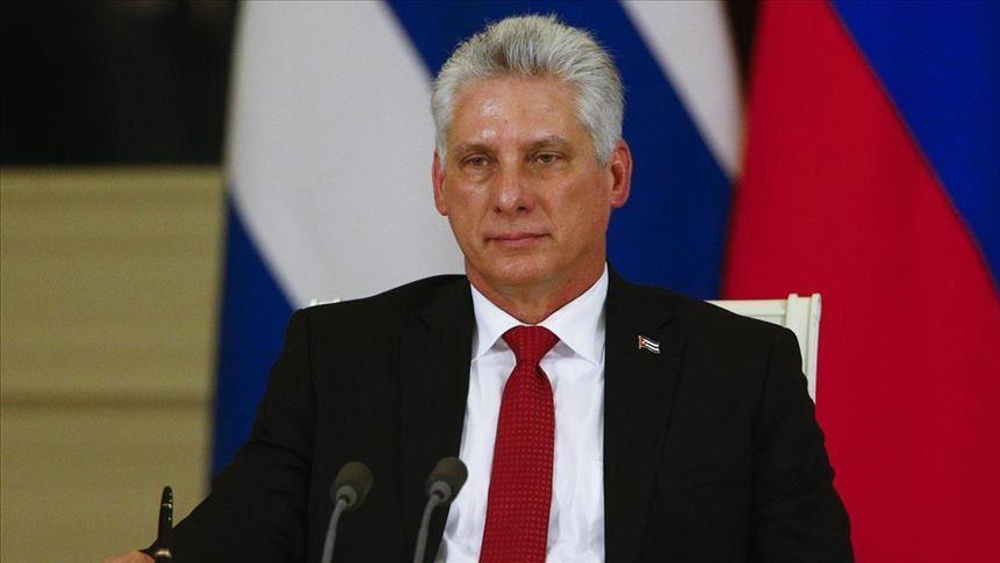
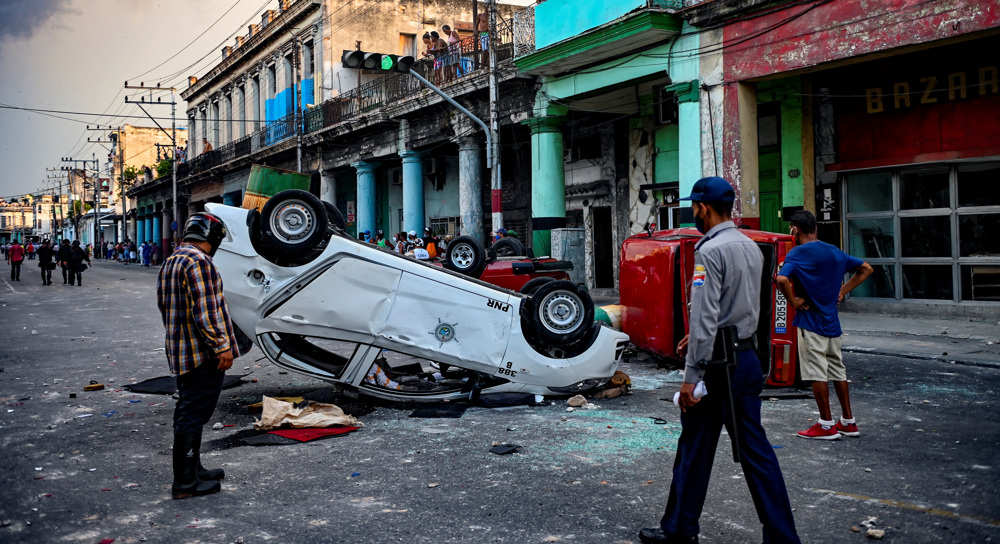
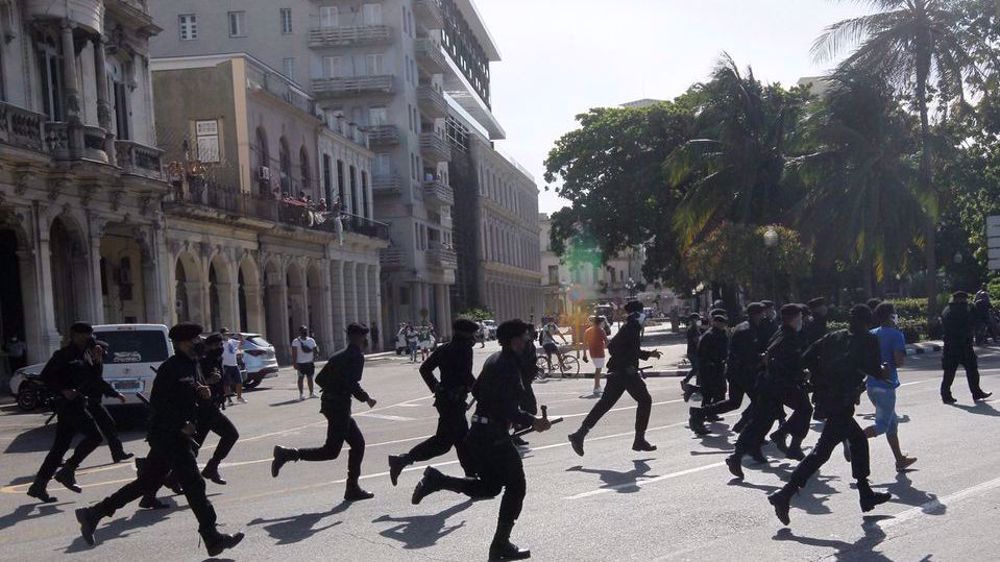
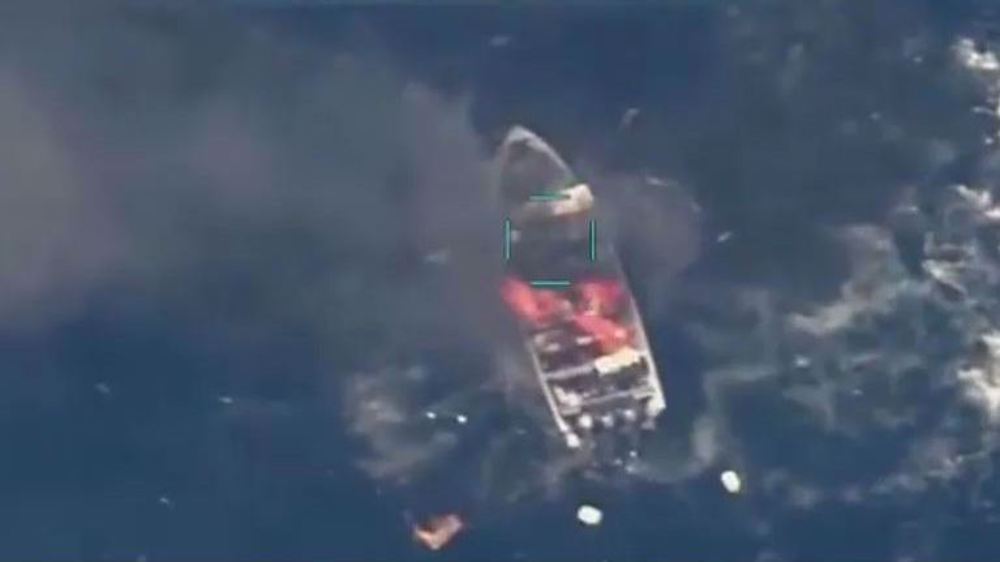
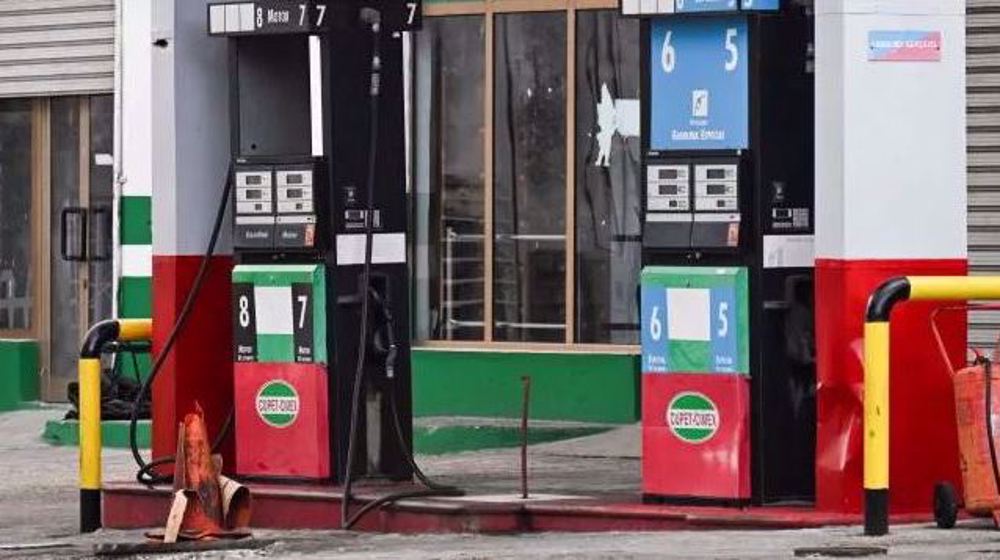
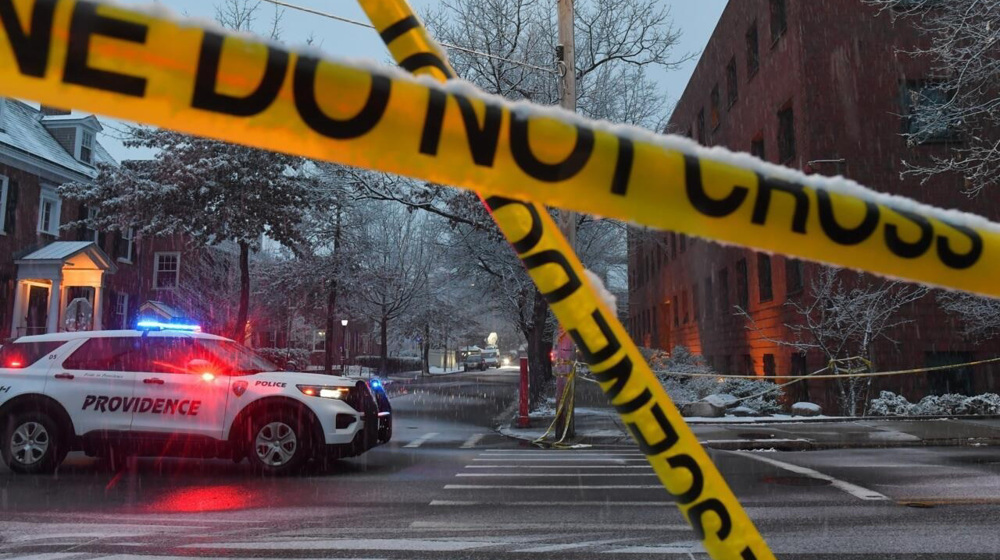




 This makes it easy to access the Press TV website
This makes it easy to access the Press TV website